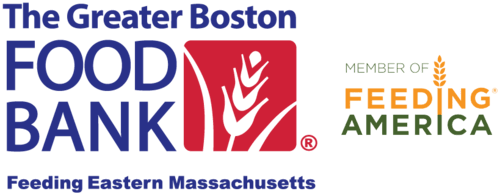The Greater Boston Food Bank’s Statement on the Passage of the American Rescue Plan Act
The Greater Boston Food Bank’s Statement on the Passage of the American Rescue Plan Act
March 11, 2021 – As we surpass the one-year mark of the COVID-19 pandemic, families across the Commonwealth continue to struggle with food insecurity. The Greater Boston Food Bank (GBFB) and our network of nearly 600 food distribution partners across Eastern Massachusetts have adapted to respond to the historic need over the past 12 months. While the emergency food system has answered the call during this pandemic, our federal nutrition programs are the first line of defense in the fight to end hunger, and GBFB is pleased to see the investments made in these programs in the American Rescue Plan Act passed by Congress and signed by President Biden.
The American Rescue Plan Act extends the 15 percent increase in Supplemental Nutrition Assistance Program (SNAP) benefits, which was set to expire after June 30, through September 30, 2021. The bill also provides administrative funding for states as well as funding for technological investments to expand online SNAP benefit usage. SNAP is our country’s most effective anti-hunger program, and it offers a scalable solution for families: For every meal provided by the emergency food system in Massachusetts, SNAP provides five.
The bill also includes investments to expand produce access and make technological investments for the Special Supplemental Nutrition Program for Women, Infants, and Children (WIC) as well as extension of the Pandemic EBT (P-EBT) program through the duration of the pandemic. The P-EBT program has been a crucial resource during COVID-19 for children being able to access nutritious food. The Massachusetts Department of Transitional Assistance (DTA) has been leading on P-EBT implementation and access, and GBFB applauds DTA for recently becoming the third state in the country to receive federal approval for expanding its P-EBT program, which will now include children under 6 who are in a SNAP household. These investments in the bill, along with the $37 million in additional funding for senior nutrition through the Commodity Supplemental Food Program (CSFP), are significant as we work to address hunger among our most vulnerable neighbors.
Finally, we applaud Congress for including $4 billion in funding for the U.S. Department of Agriculture (USDA) to address the food supply chain disruptions caused by the pandemic. COVID-19 has highlighted the need to bolster our food supply system, and GBFB commends the specific investments in the American Rescue Plan Act for increased food donations, food worker protection, and food supply infrastructure.
While we are encouraged by the passage of the American Rescue Plan Act and its investment in federal nutrition programs, there is more work to be done to ensure that our economic recovery is equitable and responsive to our families most in need. While the bill strengthened the Child Tax Credit and Earned Income Tax Credit, which will cut child poverty in half, it did not include an increase to the federal minimum wage, so we hope that Congress will tackle this issue in the near future. We also encourage Congress to extend the 15 percent SNAP benefit boost throughout the pandemic and economic recovery and make additional investments to The Emergency Food Assistance Program (TEFAP) as the emergency food system continues to respond to the historic demand.
As we learned from the 2008 economic downturn, the increased demand for food assistance continues years after a national crisis. Our federal nutrition programs and emergency food system working in concert to combat food insecurity will ensure that our families are able to access healthy meals. GBFB is looking forward to future action by Congress to address the pandemic and economy recovery, and we are excited to work with USDA Secretary Tom Vilsack to continue to strengthen the relationship between government and the charitable food system as we work together to end hunger here.
